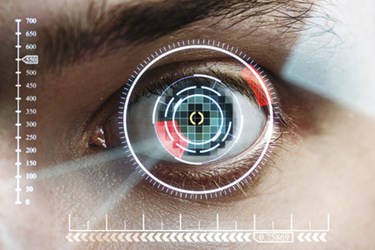Biometrics Authenticate Student Identity

Online college courses have risen in popularity due to the flexibility they allow, but they also bring increased potential for cheating. Technology is available, that, according to D. Frank Smith of EdTech, verifies a student’s identity with “something that cannot be shared — their bodies.” With biometrics, a student’s identity can be authenticated using unique body identifiers. Recently, companies like Apple and Samsung have included a key biometric feature, fingerprint scanner technology, to iPhone S5 and Galaxy S5, bringing biometric technology mainstream.
Smith states that Biometric Signature ID, a Lewisville, TX, company “has found some success in higher education through its eponymous handwriting and gesture-based security program.” The technology creates a profile for each student based on how they write, sign, or gesture with a pen or mouse. This along with a series of personalized clicks on an image authenticates a student’s identity.
Another biometric technology making its way into many colleges is typically reserved for private security systems or military purposes — iris scanners. One college using such technology, Georgia Southern University, has authenticated more than 375,000 transactions since deploying their iris scanning system in August 2013.
The costliness of biometric technologies can prove a barrier for colleges seeking to integrate them into their authentication measures; however, as the technology evolves and its usage increases, the components that make up biometric technology become more affordable. Mark Sarver, CEO of eduKan, a consortium of community colleges that offer online courses and degrees, says the group has been using biometric scanning to authenticate more than 10,000 students over the past three years. He told eCampus News that the technology has proved to be cost-effective and transparent to students.
